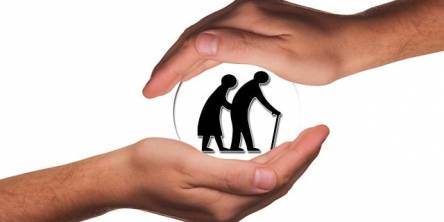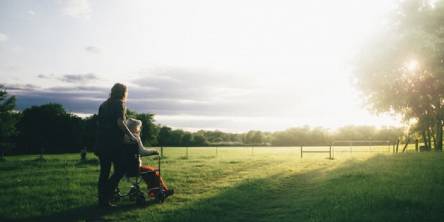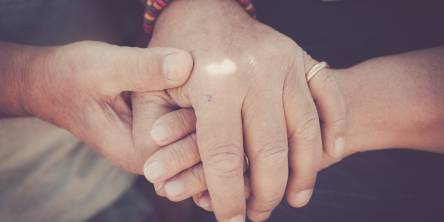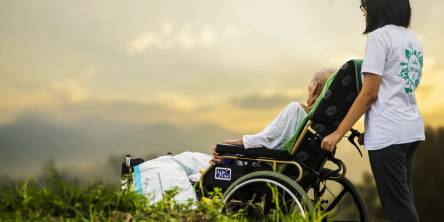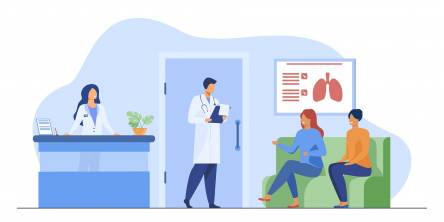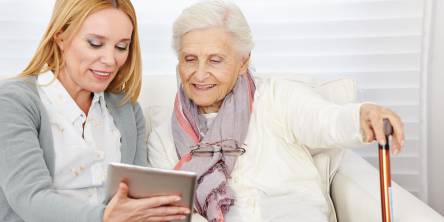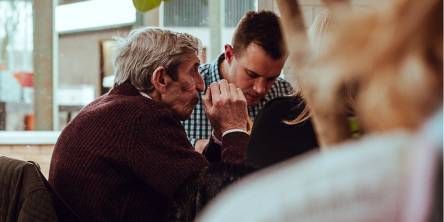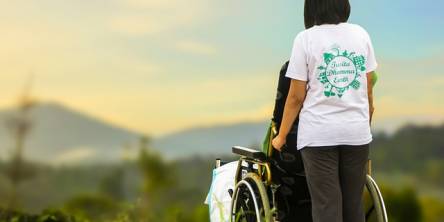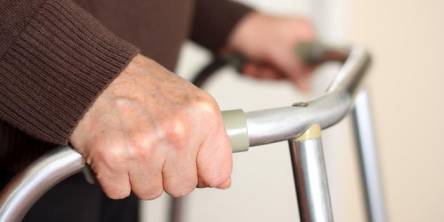6 Tips for Taking Care of Seniors in the Summer

Summers mean several things for several people - numerous enjoyable outdoor activities such as picnics, swimming, barbecuing, and going to the beach, among others. However, the rising temperatures can pose major health risks, particularly for the elderly. This might be due to a variety of factors, including physical changes associated with aging and chronic health issues. There are also the following reasons:
- Older adults do not acclimatize to temperature fluctuations as effectively as younger individuals.
- They are more prone to suffer from a persistent medical condition that alters typical heat responses.
- They are more inclined to use prescription medications that restrict sweating or affect the body's capacity to regulate temperature.
Every year, a large number of elderly people are admitted to hospitals owing to health concerns induced by extreme heat and humidity. As a result, it is critical that we – as caregivers – prioritize our senior loved ones as a vital element of elderly care. As the weather becomes warmer, it's a good idea for family senior caregivers to educate their elders for when the temperature increases, because not everyone realises how uncomfortable the heat maybe for them.
Here are some crucial summer safety recommendations to keep in mind in order to take care of your elderly loved ones and enable them to make the most of the summer months. Take a look!
1. Hydrate Well
In the heat, the most important thing to remember is to keep your elderly loved ones hydrated at all times. Due to a variety of circumstances, older people are more prone to dehydration and electrolyte abnormalities. Caregivers should keep a careful check on their senior loved ones in this situation to ensure that they are drinking water consistently throughout the day and boosting their hydration levels on particularly hot days or during periods of heightened activity. Always bring water bottles with you when you go out to make it simpler for your elderly loved one to keep hydrated. Cucumbers, apples, berries, tomatoes, and soup are all high-water-content items to keep in the fridge.
2. Sunscreen
On bright, sunny days, it's difficult to pass up the opportunity to step outside and get some vitamin D. Always ensure that your senior loved one is shielded from the sun before venturing outside. Always have a broad-spectrum, high-SPF sunscreen on hand, and assist your senior loved one in applying it before heading out. Also, make sure kids reapply sunscreen as the day progresses. Encourage your elderly loved ones to wear a shaded sun hat as well as breathable, warm-weather clothing to protect themselves.
3. Select Your Outdoor Activities Carefully
Only take your elderly relatives out during the cooler hours of the day. This might be in the early morning or late at night. If you leave the house, make sure you have hats/caps, sunglasses, sunscreen, umbrellas, and other protective items with you. Avoid being outside on particularly hot days and don't remain out for too long.
4. Wear Proper Clothes
It's critical to dress in light-colored, breathable clothes. Lightweight long sleeves and leggings are ideal for shielding your loved one from the sun. When it's hot outside, some individuals prefer natural textiles (like cotton) over synthetic fibres. On sunny days, try to dress in long-sleeved clothing.
5. Learn to identify Symptoms of Heat-Related Illnesses
It's critical to detect the symptoms of dehydration, heat exhaustion, and heatstroke. Thirst, disorientation, irritability, and poor skin elasticity are the most prevalent indicators of dehydration in the elderly. The most essential preventative step is to stay hydrated on a regular basis, and persons should be urged to drink fluids even if they are not thirsty, since thirst may not be triggered until they are already dehydrated. Heat and dehydration can induce dizziness and falls in seniors, as well as disorientation.
- Profuse sweating
- Paleness
- Muscle cramps
- Fatigue
- Weakness
- Dizziness
- Headache
- Vomiting or nausea
- Fainting
- Cool or moist skin
- Weak or fast pulse rate
- Shallow and quick breathing
Heatstroke is the most severe heat-related sickness, and it happens when the body's temperature becomes uncontrollable. The body's temperature increases quickly, the capacity to sweat is lost, and the body is unable to cool down. If immediate care is not given, heatstroke can result in death or lifelong disability. The following are some warning signs:
- An extremely high body temperature
- Red, hot and dry skin without sweating
- Thready and rapid pulse
- Throbbing headache
- Dizziness
- Nausea
Any sign of heatstroke should be treated as a medical emergency. Seek medical help right away.
6. Consult Your Doctor
Check with your primary care physician to ensure that any drugs you're taking won't be impacted by the warmer weather, especially if you don't have air conditioning at home. Some drugs lose their effectiveness when stored at temperatures over room temperature, and the last thing anybody wants is for a preventable medical condition to worsen because of high temperatures.
Because high temperatures may be life-threatening, communication is crucial in providing appropriate elderly care. If you'll be spending a lengthy length of time outdoors, even if it's only gardening, you should let your friends and family know. Senior caregivers should check on their loved ones' health and well-being at least twice a day.
Similar Articles
For individuals requiring extensive support and assistance with daily activities, in-home care is an invaluable resource. This level of care provides continuous support and supervision, ensuring that individuals receive around-the-clock aid in the comfort and familiarity of their own homes.
When choosing an assisted living community, it is essential to consider the type and quality of food offered. This is generally one of the first things people look at when they tour different communities because it can affect the quality of life for residents immensely.
Old age comes with its own set of problems and one of the most serious issues the elderly have to face is heart problems. While heart issues can affect anyone, the risk of cardiovascular disease goes up as you get older. In fact, more than 67% of people between the ages of 60-79 years suffer from some form of heart disease.
Dementia is a frightening condition with the primary symptom being declining memory loss and the overall inability to perform simple problem-solving tasks. Additionally, it impacts a person’s ability to think critically, whilst affecting the language patterns. It is a common occurrence among the elderly in society.
This article will show you the six important steps you should follow when hiring an in-home care agency. Learn here more about how to find the right in-home care agency near your area.
Sheltered accommodation is another in the list of long-term elderly care options as opposed to care homes, care in the community or living with family. Often it is called warden-controlled accommodation, as this is one of the benefits, there is a warden on site usually 24 hours, they often live on site.
A fundamental part of giving care is being a good communicator with the person getting care. Care is given with respect for the dignity of the person receiving care. The carer remains in contact with the primary health care provider, often a doctor or nurse, and helps the person receiving care make decisions about their health and matters affecting their daily life.
When you take a look around, you realize that the country is aging and getting a few more gray hairs. More baby boomers are entering early retirement and modern medicine is helping us to live longer into our golden years.
Mobility aids are the best medical products used by the disabled and elderly to walk easily, which are not capable to move or walk freely on their own. Today, the market is flooded with many kinds of mobility aids.

